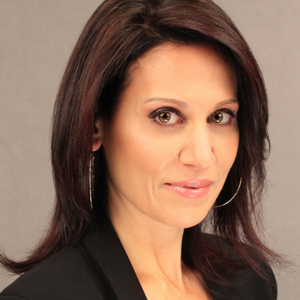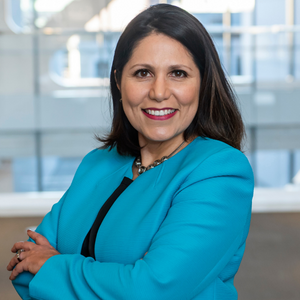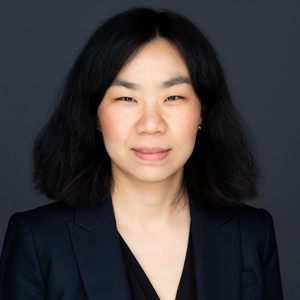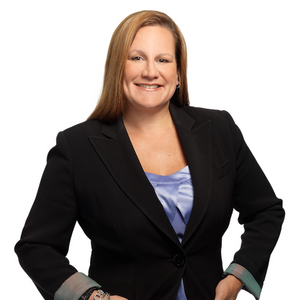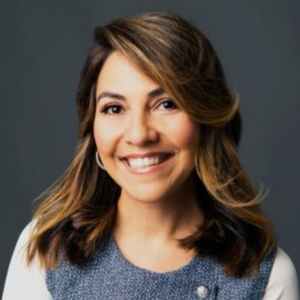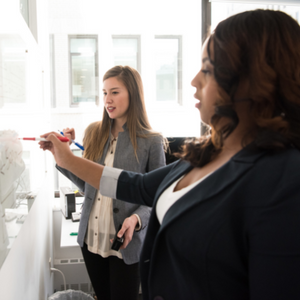Dr. Sarah Carrier, MD: Emergency Physician, JH Quillen VA Medical Center
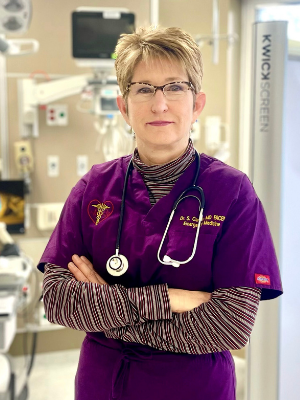 “Medicine is both an Art and a Science,” says Sarah Carrier, MD. “The science is knowing what kind of disease the patient has. The art is knowing what kind of patient has the disease.”
“Medicine is both an Art and a Science,” says Sarah Carrier, MD. “The science is knowing what kind of disease the patient has. The art is knowing what kind of patient has the disease.”
Carrier speaks of the call to become a doctor, establishing herself as a peer among men and why soft skills matter especially in her profession.
Heeding the “Burden” to Pursue Medicine
Carrier did not come from a medical family (her parents were in engineering and real estate), but recalls being drawn from an early age. After being a volunteer “candy striper” in high school, she began to think of a career in medicine. Her mother’s solid advice was to get her foothold in nursing before seeing if she wanted to invest her study and finances in becoming a doctor.
“I spent ten years in nursing. But there’s an expression in this part of the country that people are ‘called to preach.’ They have a burden to preach, meaning they can’t not do it,” she notes. “Well, in my case, I felt called to medicine. I had a burden to be a doctor and it would not go away.”
What catalyzed the decisive moment to embark on becoming a physician, as a thirty-year old working nurse with small children four and six years, was the shock of losing a good friend in a car accident: “When she tragically died, I thought we never know how much time we’ve got on this planet, so I really don’t want to go to my grave without having tried to do what I felt I was called to.”
Despite the bewilderment of her friends, she spent a year preparing for the MCAT entrance exam and then entered medical school while raising what became three children, still practicing nursing during some of her summers.
From Nurse To “Female” Doctor
Having been a nurse before becoming a doctor gave Carrier a kindred respect for nurses: “I think first being a nurse made me a better doctor, because I know what their job is like and I’m there to work with them. Whereas a lot of physicians come in acting like the boss, it’s a different demeanor and often more of an ego thing. I knew first hand that the nurses you work with can either make your job easy or they can make it hard. You should never forget that you are on a team. You may be the Captain but it is still a team. Everyone matters.”
Working in the South, in a generally more paternalistic culture, Carrier admits that the medical environment still carries a bit of pecking order about it, though there are many more women in emergency medicine than when she began. Nonetheless, she has had to regularly “out” herself as the doctor to her patients.
“When I started, I’d go into the room and patients would presume I was the nurse. I realized it was up to me to let them know that I was in fact the doctor,” says Sarah Carrier. “In my line of work, you are meeting people on the fly. No one comes to the ED because they’re having a good day, so that’s where we start. You have to get good at gaining trust and confidence.”
Carrier has never felt she is competing against male peers in the medical field, but she has organically developed tactics to quickly establish herself as a peer, especially when doctors are calling each other up to transfer patients or get patients admitted into specialist departments, and there is just her voice to go on.
“I want to make sure they know that I’m the doctor, not the transfer coordinator, so I use their first name to create more of a level playing field. Instead of saying ‘Dr. Smith’ for example, I’ll say ‘John, this is Sarah Carrier over here in the ER’,” she notes. “I’ve found the conversation comes more collegial with that small, simple thing.”
One mentor Carrier remembers was a chief surgeon at John Hopkins who exhibited tongue-in-cheek confidence. She would walk through the hallway announcing, “Okay, the girl doctor is making the rounds.” She advised Carrier to not take nonsense from anyone and importantly, to not expect perfection from herself.
Carrier has observed the peer dynamic between female physicians is surprisingly more supportive than she experienced as a nurse. She suspects that being fewer in number relatively increases camaraderie and forthcomingness to support each other.
It’s actually outside of the hospital, when working with other women on volunteer projects, that Carrier has felt her role as a physician can seem to affect the way women relate to her, and she might hold back on that detail when first connecting as friends.
The Soft Skills of Emergency Medicine
With a range of patients from pediatrics to geriatric, women are usually involved in emergency visits, from caregivers to mothers to spouses. Carrier has found that women seem to relate better to other women in these contexts of vulnerability, so being a woman is often an asset.
“Generally speaking, I think men will more often stand with the clipboard and take care of business. In my experience, they don’t tend to try to make the emotional connection as often,” she observes. “Whereas women tend to sit down in the room and talk to people and make the emotional connection.”
She notes, “You don’t have to spend a lot of extra time, but to just sit down and ask, ‘are you under a lot of stress?‘ or ‘what’s been going on besides the baby being sick?’ is enough to let them know that you identify with their situation.”
Carrier often has to speak transparently about health to patients she’s known for only five minutes before the tests, and while she values telling it like it is, she also says that in any profession there’s a delicate line to observe: “I think patients appreciate the fact that you’ll sit down and say, ‘I’ve got some things I’ve got to tell you. Some of them are going to be hard to listen to. Some are good. Some are not so good’. You can be honest, but you don’t have to be brutally honest. You don’t have to say,’ ‘you’ve got a lung mass and it’s probably cancer’. But you can say, ’there’s something there that doesn’t belong there, we need to get some more tests and here’s the five things that might be.'”
Seeing Her Role as Education
Carrier encourages questions and educating people in a way that empowers them in their own health. She has appeared on Discovery Channel’s “Untold Stories of the ER” four times, and while the show dramatizes the emergency room, it also allows her to educate people. An episode in which she throughly explains a heart attack, around a situation where a patient was resisting the diagnosis while going into cardiac arrest, has been viewed over 500,000 times and could save lives.
“I’m basically explaining the physiology of a heart attack, which is something I deal with nearly every day. But the average person doesn’t really understand how they get from feeling fine to being literally at death’s door,” notes Carrier. “So that particular episode where I could explain in very simple terms how a heart attack works matters.”
Appreciation and Presence
Working in a 24/7 emergency situation requires calm in navigating chaos. Carrier has learned how to compartmentalize and switch gears from an urgent situation to a more standard injury, while being present to each patient. Being an emergency physician during Covid has definitely stretched her stamina.
More than anything, her job is a constant reminder of the relative nature of problems, and to appreciate her life. Since returning to school with young children, preserving quality time with family mattered more to her than achieving perfect grades. And it still matters to make that time.
She enjoys being involved in organizations where she can work beside other women outside of the medical field, such as in volunteer groups and, presently, an art commission.
By Aimee Hansen

